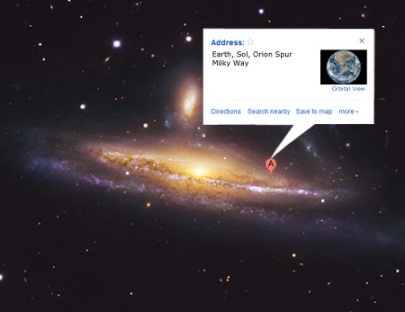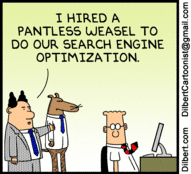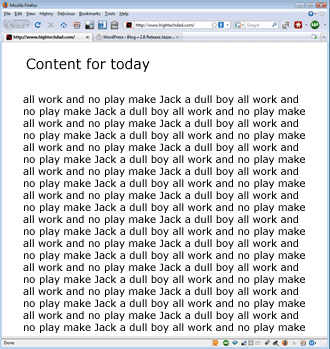Is it backlinks?
Is it high PageRank?
Is it carefully selected keywords?
Metatags?
Sacrificial goats?
What Google wants is content, of course!
What they’ve been saying all along: in order to rank well in the search results, all you have to do is write lots of great content, with the following deep, trenchant, and impressively penetrating philo-sophical questions in mind:
(Lifted straight from Google Webmasters Central).
More guidance on building high-quality sites
- Would you trust the information presented in this article?
- Is this article written by an expert or enthusiast who knows the topic well, or is it more shallow in nature?
- Does the site have duplicate, overlapping, or redundant articles on the same or similar topics with slightly different keyword variations?
- Would you be comfortable giving your credit card information to this site?
- Does this article have spelling, stylistic, or factual errors?
- Are the topics driven by genuine interests of readers of the site, or does the site generate content by attempting to guess what might rank well in search engines?
- Does the article provide original content or information, original reporting, original research, or original analysis?
- Does the page provide substantial value when compared to other pages in search results?
- How much quality control is done on content?
- Does the article describe both sides of a story?
- Is the site a recognized authority on its topic?
- Is the content mass-produced by or outsourced to a large number of creators, or spread across a large network of sites, so that individual pages or sites don’t get as much attention or care?
- Was the article edited well, or does it appear sloppy or hastily produced?
- For a health related query, would you trust information from this site?
- Would you recognize this site as an authoritative source when mentioned by name?
- Does this article provide a complete or comprehensive description of the topic?
- Does this article contain insightful analysis or interesting information that is beyond obvious?
- Is this the sort of page you’d want to bookmark, share with a friend, or recommend?
- Does this article have an excessive amount of ads that distract from or interfere with the main content?
- Would you expect to see this article in a printed magazine, encyclopedia or book?
- Are the articles short, unsubstantial, or otherwise lacking in helpful specifics?
- Are the pages produced with great care and attention to detail vs. less attention to detail?
- Would users complain when they see pages from this site?
Easy, right? So what’s the problem? Why does everyone persist with all this SEO tomfoolery?
Simple. Because Google’s algorithm, smart as it is, will NEVER be smart enough. What happens when every website in the world follows all of the above “advice”? When every single article on the web is “Quality Content™”? Who gets the top rank then? It will STILL COME DOWN TO KEYWORDS, BACKLINKS, and CHICANERY.
Now don’t get us wrong—we’re absolutely in favor of improving the quality of the internet. We’d love to see brilliant writing, jaw-dropping design, and glorious graphics burst from every page in a Renaissance of Creation the likes of which will ring throughout the Galaxy for all the aeons to come.
And even so, when that happens, when the internet is 4 billion perfect pages strong, Google’s going to need a few more questions.








